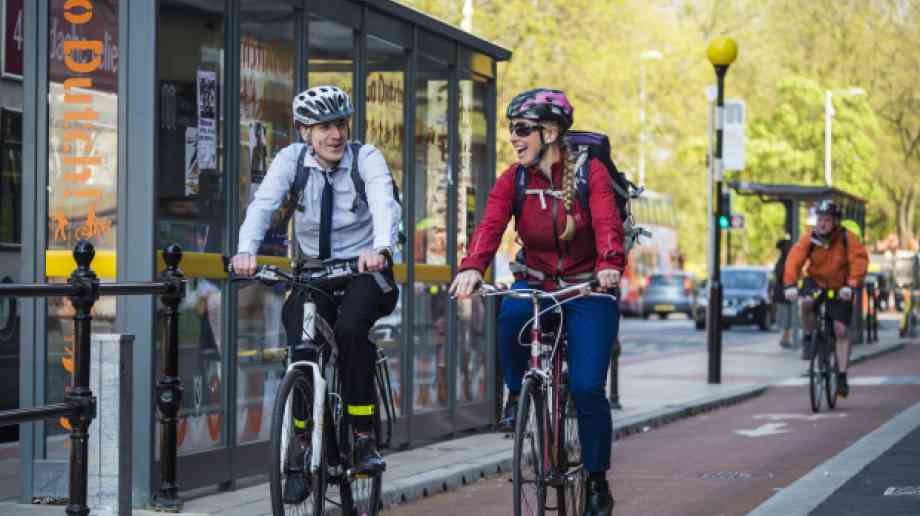Sue Robb of 4Children talks to Julie Laughton and Alison Britton from the Department for Education about the role of childminders in delivering the 30 hours free entitlement.
New roads should prioritise pedestrians and cyclists

NICE has advised that pedestrians, cyclists and those who use public transport should be given priority when new roads are built or upgraded.
A draft quality standard for encouraging physical activity within the general population was published on 4 January, claiming that planners should develop policies and initiatives to ensure that safe, convenient, inclusive access for pedestrians, cyclists, and people who use public transport is maximised and is prioritised over motorised transports.
With physical inactivity responsible for one in six deaths and believed to cost the UK £7.4 billion each year, including £900 million to the NHS, the aim is to get people to be more active in their day-to-day lives by encouraging safe, convenient, active travel that is accessible for everyone, including older people and people with limited mobility.
Gillian Leng, deputy chief executive and director of health and social care at NICE, said: “Getting people to be more physically active by increasing the amount they walk or cycle has the potential to benefit both the individual and the health system. As a society we are facing a looming Type 2 diabetes crisis, which is in part caused by people not exercising enough. We need more people to change their lifestyle and to take more exercise.
“People can feel less safe when they walk or cycle compared with when they drive. We’ve got to change this. So asking planners to prioritise pedestrians, cyclists and those who use public transport when roads are built or upgraded can ensure they are safe, attractive and designed to encourage people to get out from behind their wheel.”
Gerald Vernon-Jackson, chair of the Local Government Association’s Culture, Tourism and Sport Board, said: “Councils have a long history of providing leisure facilities for communities, but over time this has developed into a role championing the importance of physical activity outside of the gym or swimming pool.
“This is why we are encouraging the government to consider the impact further spending reductions would have on councils’ abilities to provide these valued, high-quality services, such as parks and green spaces. The recent announcement of further reductions to the public health grant will also undermine local authorities’ ability to improve the public’s health and keep the pressure off the NHS and social care.
“Planning strategies now include measures to increase cycling and walking routes and introduce sustainable green spaces in new developments. Local authorities are also doing everything they can to ensure that people have access to affordable, nutritious food, including supporting weight management and healthy eating programmes.”
Company Focus
Just Lanyards is a subsidiary name of Gifts 2 Impress Limited, who have been trading for over 25 years, we therefore pride ourselves in having endless experience covering all aspects of the promotional merchandise industry.
Event Diary
UKREiiF has quickly become a must-attend in the industry calendar for Government departments and local authorities.
The multi-award-winning UK Construction Week (UKCW), is the UK’s biggest trade event for the built environment that connects the whole supply chain to be the catalyst for growth and positive change in the industry.
Supplier Profiles
Geo Energy
At GeoEnergy Design, we're on a mission to disrupt the traditional way heating and cooling ha
Latest Features
Professor Harith Alani, director of the Knowledge Management Institute at the Open University explains how AI can be used for good and bad.
Alex Lawrence, head of health & social care, techUK sets out techUK’s Five Point Plan for CareTech.

















